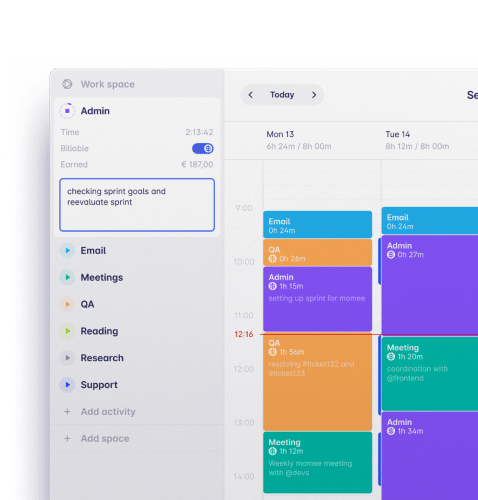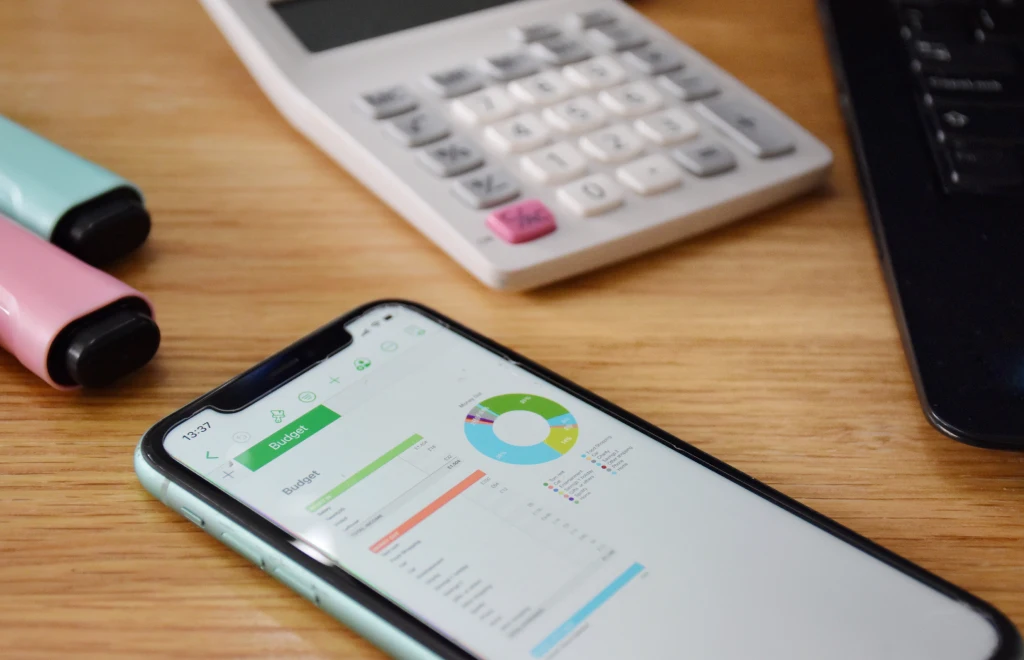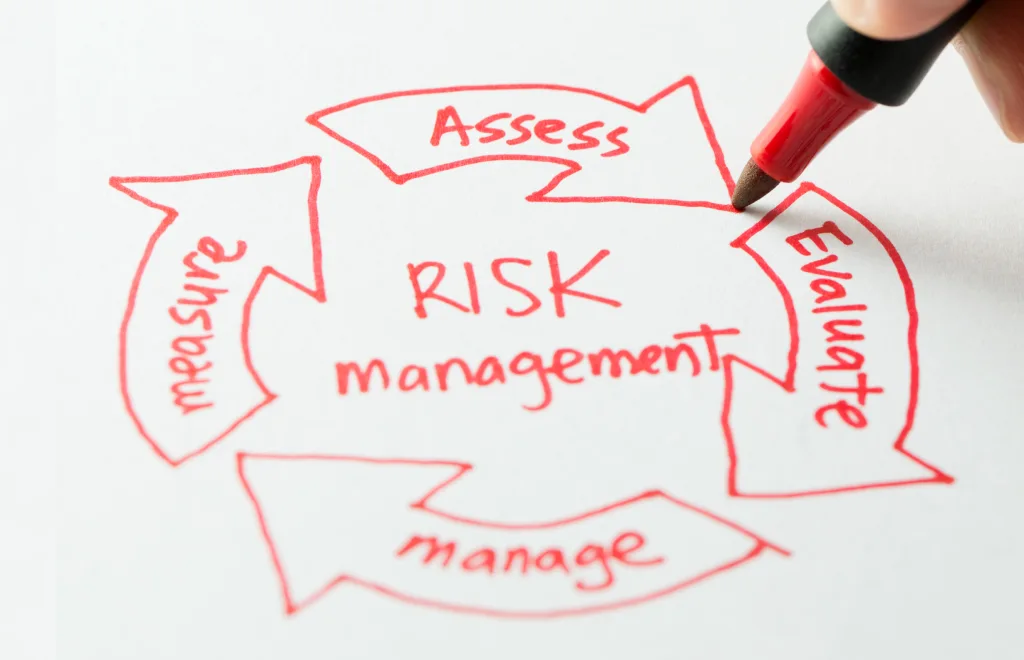Project Managers’ Roles and Responsibilities in 2024
Project management is an essential component of any successful business or organization, and Project Managers are the driving force behind it.
By now, you probably know that Project Managers need to have a deep understanding of Project Management principles, along with excellent leadership, communication, and problem-solving skills. But what exactly are the roles and responsibilities of a project manager?

Free eBook: The Project Manager’s Handbook on Time Tracking
Get your step-by-step guide to master time tracking as a Project Manager
In this article, we’ll explore the essential roles and responsibilities of a Project Manager, the skills required to succeed in this field, and how to become a successful project manager.
What is a Project Manager?
A Project Manager is a professional who leads a team to achieve specific goals and objectives within a defined timeline and budget.
He or she is responsible for overseeing the project’s progress, ensuring that it is delivered on time, within budget, and meets the required quality standards.
A good Project Manager must be able to manage risk, identify and manage stakeholders, and ensure effective communication with all parties involved in the project.

Project Managers’ roles and responsibilities
The concepts of roles and responsibilities of Project Managers are often used interchangeably, but they refer to different aspects of the Project Manager’s job.
So before we delve into each of them, let’s clarify what each of these terms means in the context of Project Managers.
Roles are the broad areas of responsibility that a Project Manager is expected to fulfill. These roles may include planning, organizing, controlling, leading, and communicating.
On the other hand, responsibilities are the specific tasks and duties that a Project Manager is responsible for. For example, a project manager’s responsibilities may include creating a project plan, monitoring the project’s progress, managing risks, and communicating with stakeholders.
In summary, while the roles of a Project Manager refer to the broad areas of responsibility, the responsibilities refer to the specific tasks and duties that a Project Manager is expected to carry out within those roles.

Free eBook: The Project Manager’s Handbook on Time Tracking
Get your step-by-step guide to master time tracking as a Project Manager
What is the role of a Project Manager?
The role of a Project Manager is multi-faceted and complex. It involves planning, organizing, controlling, leading, and communicating to ensure that a project is completed successfully.
Next, we’ll explore some of the key roles that a project manager must fulfill.
Planning
A Project Manager must develop a project plan that outlines the project’s scope, milestones, goals, timeline, budget, and resource allocation.
It’s their responsibility to work with the project team to create a detailed project schedule and identify potential risks and issues that could impact the project’s success.
TIP: Get to know some examples of project milestones.
Organizing
A Project Manager is responsible for organizing the resources required for the project, including personnel, equipment, and materials.
Project Managers must assign tasks to team members based on their skills and expertise and ensure everyone understands their roles and responsibilities.
TIP: Find the best project management software that allows you to better organize your project.

Monitoring
A Project Manager must monitor, and control the project’s progress, including managing risks, addressing issues, and resolving conflicts.
It’s part of their roles to ensure that the project is on track and that it’s delivered on time, within budget, and to the expected quality.
Learn how to manage the budget of a project.
Leading and motivating
A good Project Manager leads and motivates the project team to achieve the project goals.
They are responsible for creating a positive team environment and ensuring that all team members are working collaboratively towards a common goal.

Communicating
A Project Manager needs to ensure effective communication with stakeholders and team members to keep them informed of the project’s progress.
They must also be able to communicate project updates and changes clearly and concisely. In addition, PMs should be excellent listeners — listening to all parties involved in the development of a project is essential to anticipate unforeseen events and adapting the plan to circumvent them.
Overall, a good Project Manager needs to have a strong understanding of Project Management principles and techniques, along with excellent leadership, communication, and problem-solving skills.
Read also: How to improve communication skills to increase your productivity and efficacy.
What are the responsibilities of a project manager?
A Project Manager’s responsibilities include but are not limited to the following: creating a project plan, time management, budgeting, and documentation.
Creating a project plan
Planning involves creating a blueprint that outlines the project’s scope, estimates the project’s duration, the necessary resources, anticipated financial and time requirements, communication strategy, and execution and documentation plans.
Time management
Effective time management involves setting achievable deadlines, prioritizing tasks, and handling competing priorities. By doing so, project managers can optimize their team’s performance and reduce the risk of delays or cost overruns.

Looking for the most effortless and accurate time tracking tool for your team?
Timeular’s easy and smart experience, paired with its powerful reporting functionality, makes time tracking a delight

Budgeting
One of the primary causes of project delays is overspending, which can result from inadequate budget management or an inaccurate initial budget forecast. Therefore, Project Managers must possess excellent budget management skills to ensure project success.
This involves closely monitoring expenses, tracking cash flow, and identifying opportunities for cost reduction. Additionally, budgeting involves devising a budget and reallocating funds when necessary.
Documentation
Documentation is a crucial responsibility of a Project Manager to fulfill this responsibility, PMs need to develop effective methods for measuring and analyzing the project’s progress.
This may involve data collection, status reports, and other forms of documentation that provide a clear and comprehensive overview of the project’s development.
Additionally, all relevant actions should be approved, documented, and archived for future reference. By doing so, they can provide valuable insights into the project’s performance, identify areas for improvement, and help facilitate the future project’s success.
Read also: How to measure project profitability
How to become a Project Manager?
A career in Project Management can be gratifying, offering competitive salaries and a diverse range of job opportunities across various industries. However, it is also a challenging profession that can be highly stressful at times.
Despite this, Project Manager remains an in-demand field as qualified professionals are always needed to plan, execute, and manage complex projects.
To become a Project Manager, you need to have a combination of education, training, and experience. Most project managers have a degree in business administration, engineering, or even better — a project management certification, which can improve your job prospects and salary potential.
Get to know the best PMP certifications.
What are key Project Management skills?
Becoming a successful Project Manager requires a diverse set of skills that enable you to manage projects effectively from start to finish.
These skills can be broadly categorized into hard and soft skills, with the latter including personality traits that are not always taught in PM certification courses.
Hard skills such as project planning, risk management, budgeting, and time management are essential for effective project management.
Soft skills such as communication, leadership, problem-solving, and emotional intelligence are equally important in building successful project teams and managing stakeholders.
Next, we’ll explore just two of the key skills of a project manager.

Risk management
Managing risks is an essential part of any project, as unforeseen setbacks can lead to delays and cost overruns.
Project Managers must be proactive in identifying and addressing potential risks to keep the project on track. Some common hazards include resource unavailability and client approval delays.
To mitigate these risks, project managers should possess the ability to assess and evaluate risks, develop risk management plans, and monitor potential risks throughout the project’s lifecycle.
Communication
You can’t be a Project Manager if you’re not a good communicator, as you’ll be responsible for ensuring that all stakeholders are informed about the project’s progress.
PMs must be excellent listeners, too, able to understand and consider the perspectives of all parties involved. Additionally, Project Managers must be able to adapt their communication style to different audiences, whether it’s management, clients, or team members.
Conclusion
In conclusion, Project Managers are the driving force behind successful projects. With the right skills, experience, and mindset, a project manager can lead a team to achieve great things and deliver outstanding results.
To be an effective Project Manager, you must have technical and soft skills, including project management methodologies, leadership, problem-solving, and communication. It’s your job to balance the needs and expectations of stakeholders, team members, and clients while keeping the project on track and within budget.
Once you understand these roles and responsibilities, you will develop the skills and knowledge necessary to succeed in this exciting field!
FAQ
In construction, Project Managers oversee the construction process from start to finish. This includes planning, organizing, and controlling resources, ensuring the project is delivered on time, within budget, and to the required quality standards.
In the IT industry, Project Managers oversee software development projects. This includes planning, organizing, and monitoring resources, ensuring the project is delivered on time, within budget, and to the expected quality.
In Agile, project managers are responsible for leading the Agile development team and ensuring that the Agile methodology is followed. This includes facilitating Agile ceremonies, managing the product backlog, and ensuring that the team is working together effectively.
You might be interested in: